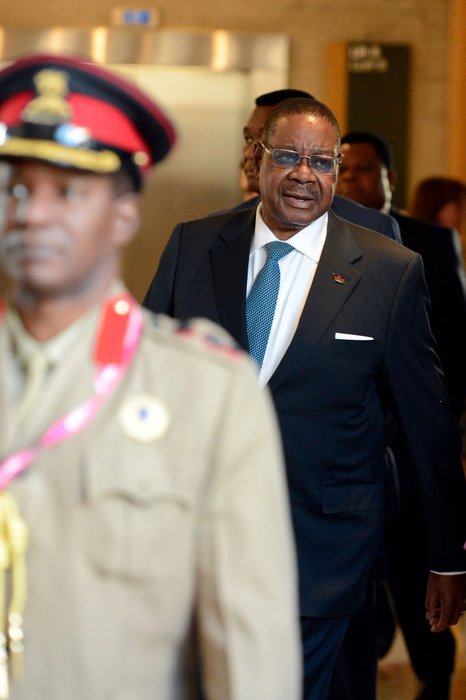
Courts nullifies 2019 presidential Elections. Fresh election to be held within 150 days.#JudgementDay #ElectionsCase @CapitalFMMw @Flow_Mwale
— Earlene Chimoyo (@ChimoyoEarlene) February 3, 2020
Association
As previously reported on the CIVICUS Monitor, on 21st May 2019, six million Malawians went to the polls to cast their votes for the president, parliament and local councils. In a hotly contested presidential poll that was marred by serious allegations of fraud, Peter Mutharika, leader of the ruling Democratic Progressive Party (DPP), retained his seat by a narrow margin. The results were however strongly disputed by the opposition candidates and their supporters, leading to the country’s worst political crisis since the return to democracy in 1994.
In a landmark ruling delivered on Monday 3rd February 2020, the Constitutional Court ordered the nullification of the May 2019 elections and ordered fresh elections be held within 150 calendar days. The court also said Parliament should determine if the electoral commission is competent to conduct the fresh elections.
ROUTES
— HUMAN RIGHTS DEFENDERS COALITION(HRDC) (@HumanHrdc) January 15, 2020
1. #Lilongwe:
Community Ground via Mchesi via Kamuzu Central Hospital roundabout straight via Parliament to Capital Hill Via #ACBOffice
2. #Mzuzu
Katoto Ground via shoprite roundabout taking through M15 via clock tower off to the High court then civic office pic.twitter.com/kLjNLmXI24
Peaceful Assembly
Since the May 2019 elections, Malawians engaged in sustained popular protests against the government which have been met with police reprisals, including police brutality and sexual violence against women. The protests, which began with calls for the resignation of Justice Jane Ansah, the chairperson of the Malawi Electoral Commission, have evolved into a wider expression of dissatisfaction with the government.
On 10th January 2020, the Human Rights Defenders Coalition organized a protest against the rape of 17 women at the Msundwe trading centre by police officers early this year. The march began at the Lilongwe community ground from where the demonstrators marched towards the police headquarters at Area 30 in Lilongwe to deliver their petition demanding that the officers involved be brought to justice immediately.
Expression
In January 2020, the high court in Zomba ordered the ministry of education to allow Rastafarian children with dreadlocks to enrol in public schools. The ruling followed an application that was filed by a Rastafarian pupil who was denied enrolment in Blantyre Girls Primary School unless she cut her hair. Rastafarians have over the years pushed for government to lift the ban on dreadlocks in schools which restricted their right to religious expression. With this new judgment, Rastafarian children will be allowed to enrol in any public school of their choice.
On 8th January 2020, three journalists from Nation Publications Limited (NPL) and Zodiak Broadcasting Station (ZBS), were detained for two hours at Kamuzu International Airport in Lilongwe and charged with disorderly conduct as they tried to cover the return to the country of a European Union electoral observer mission who were due to present their final report on the disputed May 21 election. Although the journalists presented their press credentials, local police told them they could not take pictures or hold interviews there. The journalists argued that the area was a public space and journalists conduct interviews there all the time only for their equipment was confiscated, their footage deleted, and they were locked in a police cell at the airport. Police first charged the trio with “conduct likely to cause breach of the peace”. After the journalists were taken to the Criminal Investigation Department, the charge was changed to disorderly conduct under the Aviation Act. The journalists are waiting for the court's hearing for violation of the aviation act as the police allege that that they did not have the necessary permits.
Angela Quintal, CPJ’s Africa Program Coordinator said;
“The arrival of the EU delegation was of public interest and for airport police to detain and charge the journalists is unacceptable given that they were not committing a crime… We urge Malawian authorities to drop the charges immediately and not waste the court’s time on a frivolous case.”
On the 10th January 2020, in Chitipa district, Northern Malawi, journalist Patricia Kayuni was physically assaulted by protesters who were marching at a nearby Roman catholic church. The protesters were demonstrating against the Malawi Revenue Authority, a government agency that protesters allege was collecting high taxes but failed to fix roads in Chitipa. The protesters attacked the journalists who they accused of taking photos and videos of the protest. When Kayuni explained that she was not taking photos, some of the protesters beat and kicked her pulled her hair and tried to rip off her clothes. Protest organizers intervened and brought Kayuni to police officers, who then fired tear gas to disperse the crowd and took the journalist to hospital, where she was treated for her injuries and for an asthma attack she suffered during the incident.